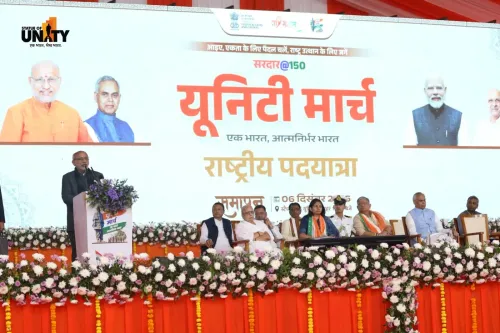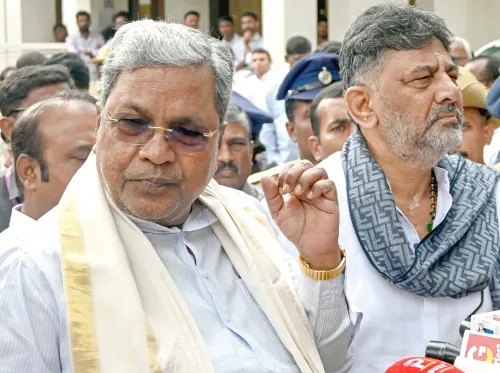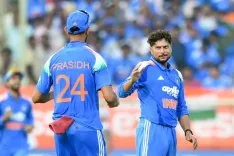Did Nishikant Dubey Spread Lies About Indira Gandhi?

Synopsis
Key Takeaways
- Tariq Anwar challenges Nishikant Dubey's claims, asserting they are false.
- The BJP is accused of orchestrating a disinformation campaign.
- Indira Gandhi's legacy is defended as one of strength against foreign pressure.
- Congress emphasizes the importance of secularism in political alliances.
- Historical context is pivotal in contemporary political discourse.
New Delhi, May 27 (NationPress) Senior Congress MP Tariq Anwar has vehemently criticized Nishikant Dubey, following the BJP MP's incendiary remarks claiming that the late Prime Minister Indira Gandhi 'surrendered Indian territory to Pakistan' in 1968. Anwar dismissed these claims as not only factually incorrect but also politically charged, arguing that such assertions are part of a systematic disinformation strategy orchestrated by the BJP.
In an interview with IANS, Anwar declared, “People like Nishikant Dubey are solely tasked with disseminating falsehoods. The BJP employs him specifically for this purpose—to create confusion and propagate misleading narratives among the public and media.”
Anwar was reacting to Dubey’s recent statement on X, where the BJP MP accused the late Prime Minister of jeopardizing national interests during the post-war boundary negotiations with Pakistan in the Rann of Kutch. Dubey referred to it as “a regrettable incident” and suggested that Congress “sacrificed” Indian land due to external pressures, particularly from the United States during that period.
In response, Anwar highlighted Indira Gandhi's historic bravery when confronted with global pressures.
“Anyone with even a basic understanding of history recognizes how Indira Gandhi confidently stood up to American pressures during the Bangladesh Liberation War. Despite the intimidating presence of the US Seventh Fleet in the Bay of Bengal, she remained resolute. This is the truth that history acknowledges, not the falsehoods that Nishikant Dubey is attempting to advance,” Anwar asserted.
He further added, “Individuals like Nishikant and parties such as the BJP manipulate facts and mislead the public for their political advantage.”
In a related development, Anwar addressed the inclusion of AIMIM (All India Majlis-e-Ittehadul Muslimeen) in the INDIA bloc, reiterating Congress' stance: “We have resolved that no communal party will be part of the INDIA alliance. Only secular parties are eligible to join this coalition.”










